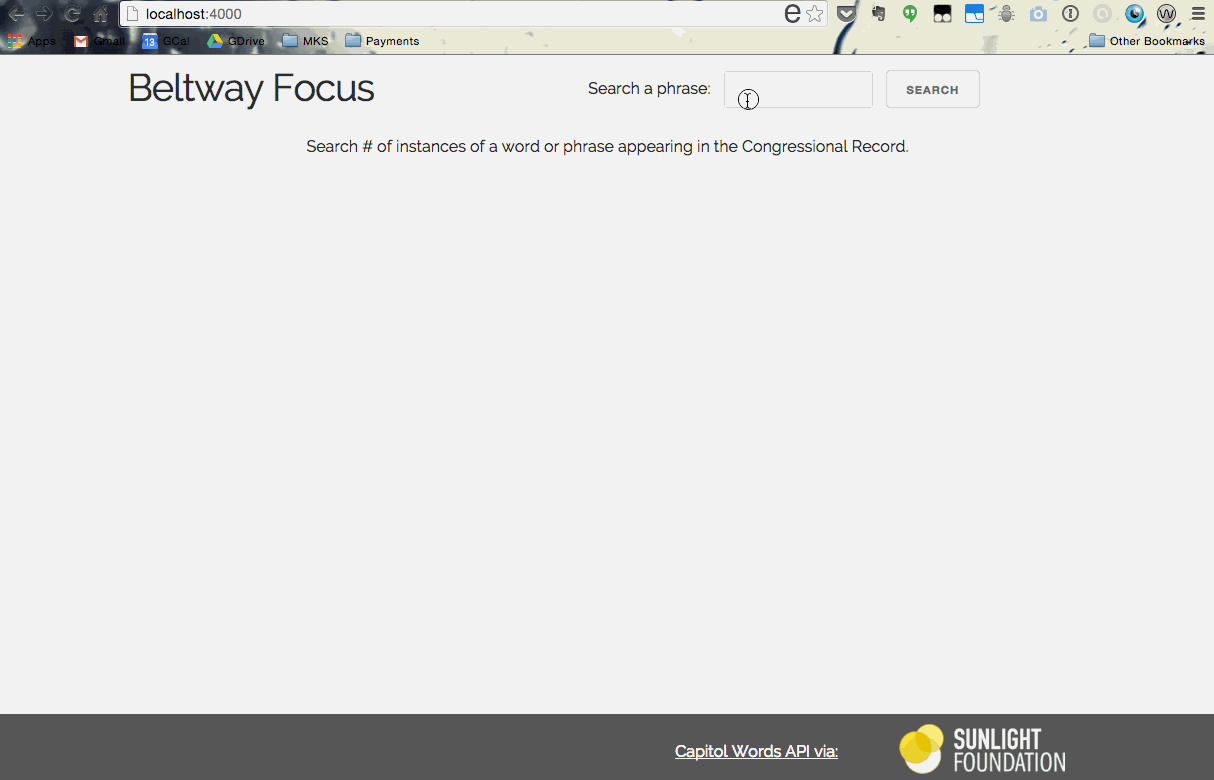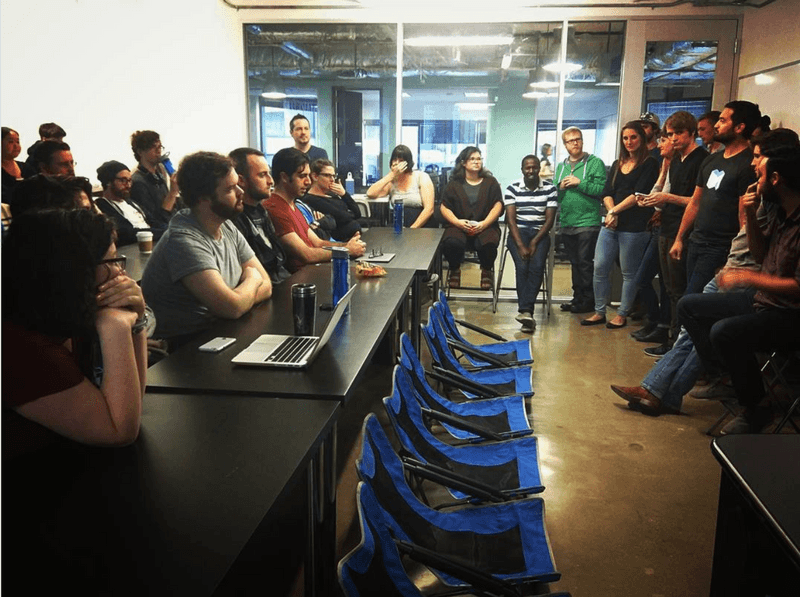MakerSquare Week 6: Halfway Through
February 14, 2016
Last week was our final week as the junior cohort. It was an exceptionally busy week, with significantly different structure and focus than the previous five weeks.
Solo Project
It began with a solo project — our first time working solo since precourse. A clean project slate, and two days to do whatever we wanted. Having the freedom to dive into a two-day personal project after the intense structure of the junior phase was really satisfying.
As I’ve said before I’m very interested in data manipulation and visualization, so I knew that was the area I wanted to work in. I chose to work with an interesting API maintained by the Sunlight Foundation — Capitol Words. I used the D3.js library to create a visualization focused on a single goal — visualize how many times in a year and word/phrase appears in the Congressional Record. See below for a project preview (live version soon to come).

At the end of the two days, we all demoed our work. I really enjoyed seeing the diversity of approaches, and what everyone chose to focus on. I was both impressed by my peers, and also quite proud of what I had created — finished, functional and presentable.
After that, we moved into assigned groups to work on our first large group project. We face an added challenge with this initial project, because the upcoming week is solo week. Solo week means a week without having to physically go to Capital Factory — everyone self-organizes, manages their own time, reviews material of their choice, and, of course, works on the group project. We will not have the benefit of the enforced structure of being in-person, all together, 9am – 8pm.
Advice: Seniors to Rising Seniors
This week we also said goodbye to the senior cohort. They also shared some parting advice in a Q+A — a few of which I captured below:
"Never push to master."
"You know more than you think you know. If you don’t feel like you know something, bring it up. Somebody knows more than you. (Not in a bad way)."
"Don’t lean on third-party boilerplate unless you can clearly articulate a reason why you need it. You’ll gain more by building it yourself."
"Scale your MVP back as far as you can. It’s real easy to run out of time."
"Overcommunicate. In a group no one needs to be stuck on something all day."
"A lot of people have said it but it’s really true — You get out of it what you put in."
"Write tests first. You’ll save yourself a lot of time and energy."
I look forward to seeing what they all end up getting up to — good luck, y’all!
Advice: Me to Incoming Juniors
On that note, I’ll write a little bit of advice to the upcoming juniors, from my current perspective. These are all things I struggle to keep to, but find important.
- You often get the advice that in order to learn, you have to get your hands dirty and break things. It’s true. Don’t be paralyzed by not knowing what to do. Do something, anything, and make mental leaps and educated guesses based on that. Eventually you’ll get somewhere.
- Use a timer. A literal timer. In the sprints, that could mean setting a time limit for how long you work on a single problem before you ask for help. Strategically asking for help (after you’ve genuinely worked hard to find a solution) is better than hitting a wall for two hours. When working on projects, that could mean setting timers for work session length — it’s important to know when to take a break (a la the Pomodoro technique).
- Work your ass off, but don’t feel like a failure if you don’t understand it yet. You’re intentionally being exposed to too much to possibly master in the allotted time. That’s happening because the next time you face it, you’ll have already seen it before, and you’re going to pick it up so much more quickly.
- Make space for yourself and the people in your personal life. Set boundaries. Keep in touch with friends during the course. (I struggle the most with this one).
- Do not compare yourself with someone else. Someone will know more than you. Use them as a resource, rather than a personal measure of success or failure.
Cumulative Assessment and Beyond
Then, before we could close out the week, we first had to face an all-day cumulative assessment of what we had learned in the previous six weeks. Exhausting, but a great exercise to see not just how much we have retained, but also how much more efficient we are at seeking, testing, and finding solutions.
So that’s it! From here on out, we get our hands dirty in project work. I can’t wait to see what comes of the next six weeks.
Read "MakerSquare Week 7: Projectland".

